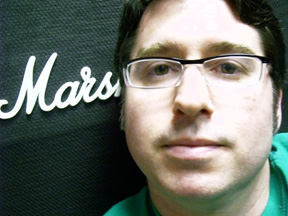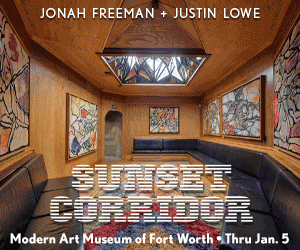Bart Rose isn’t your typical young music producer. He isn’t rail thin, the only time you’ll find him out on the scene is when he’s scoping a potential new project, and his name isn’t the first one dropped when musos start talking about favorite local producers.
No, Rose isn’t an “It” producer. All he’s done is spend the past 20-plus years twiddling knobs, honing his craft, and pumping out excellent work. Past clients include stalwart locals (Stella Rose, Bill Ham, Calhoun, Buddy Miles, Stephen Pointer) and notable out-of-towners (Steven Fromholz, Cornell Dupree) and have run the gamut stylistically from indie-rock and gospel to Texas Music and heavy metal.
In every case, Rose considers himself “the fifth band member,” he said. “I think of myself as the co-producer. The bands have a good idea what they want, so I just make sure they’re singing in pitch or add vocal harmony ideas. … I improve versus totally changing their ideas.”
Rose owns and runs Fort Worth Sound, a full-service recording studio with state-of-the-art digital equipment located on the South Side. He moved into his new spacious digs about a year ago, after spending about six years on Bluebonnet Circle under the name First Street Audio. His lone employee is second engineer Mike Garcia.
The timing of the move couldn’t have been better. Around the time that Rose’s former landlord sold the Bluebonnet building, the producer heard of a studio for sale: Steve Regian’s on South Main Street, a few doors down from Club Axis. Regian had spent three years fine-tuning the minutiae of the studio, according to Rose, only to see the recording room go practically unused.
Regian and his wife Debbie agreed to sell the building and move their post-production workspace closer to their home in Weatherford. “It was a blessing things worked out the way they did,” said Rose, who opened shop on the South Side last January. Twice as big as First Street, Fort Worth Sound includes a green room, a conference room, and a secondary recording area, where Garcia primarily handles solo and acoustic projects. In addition to increasing his square footage, Rose also traded up in terms of sound isolation. Rubber padding on a steel plate beneath the floors creates a “motionless” environment, and keeps outside noises from seeping in.
The accoutrements were the main reason Vaden Todd Lewis and the legendary Toadies decided to record No Deliverance – their first album in almost eight years – at Fort Worth Sound, with Dave Castell as producer and Rose as assistant engineer. The digs were also part of the reason that major label Capital Records paid to have one of its newest signees, Fort Worth’s Green River Ordinance, lay down some tracks there. Having bands record locally rather than in New York, Nashville, and L.A. helps record companies save some dough.
Rose makes no apologies for having a non-analog, digital-only studio. “I will trade the fatness and warmth [of analog recording] to have [digital’s] editing capabilities,” he said. “The sound is wonderful, not brittle like in the early days of digital. It’s true to the original sound.”
Considering that he spends around 60 hours a week in the studio, Rose appreciates being able to access the digital underbelly of a song to fix individual parts quickly, something that on analog would require about three hours of re-recording. And he does know what needs to be fixed. Rose studied audio recording at the famous Recording Workshop in Ohio and stays on top of the rapidly shifting trends in the industry by reading piles of trade magazines and picking out sounds from popular music. “My ears are trained to hear when something is off,” he said.
Rose also has that intangible quality that no amount of studying or practice can approximate: patience “I’m in this for the long haul,” he said.











